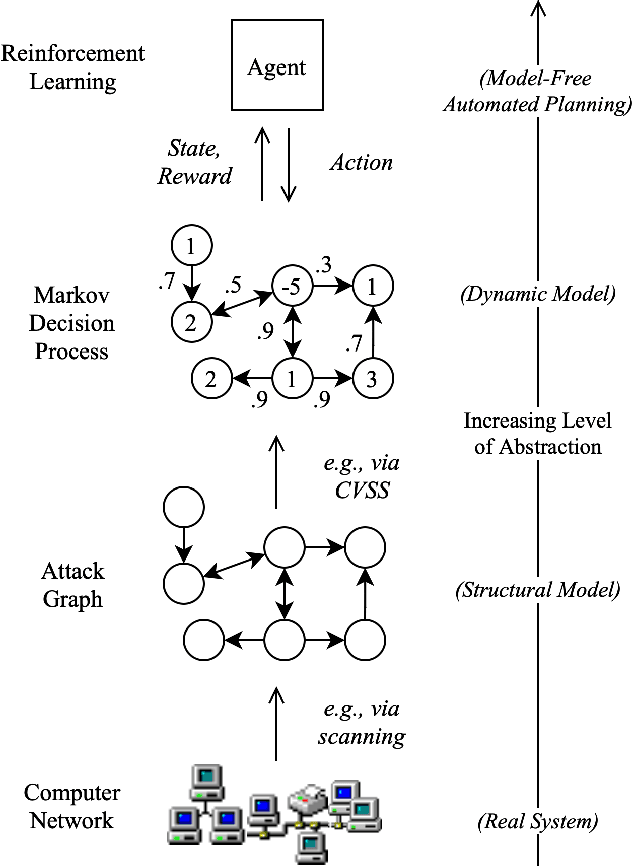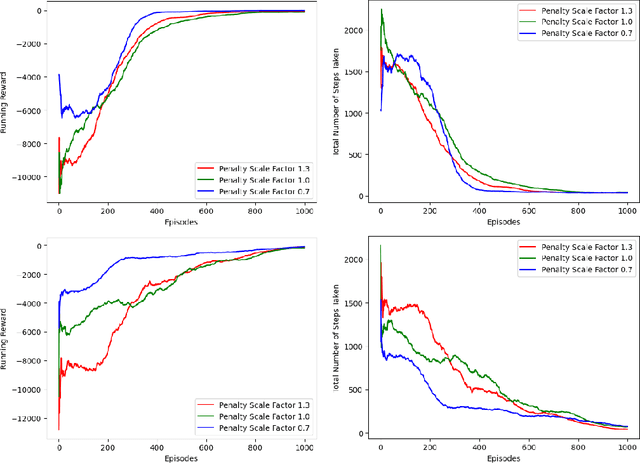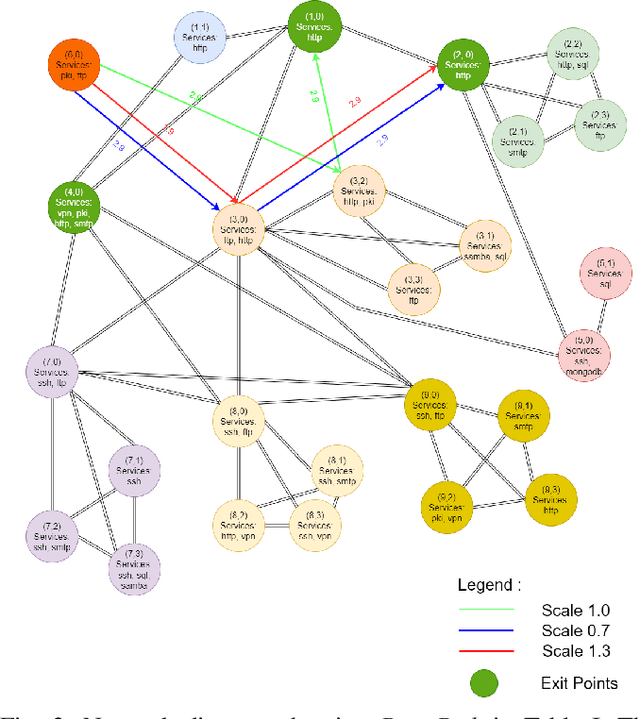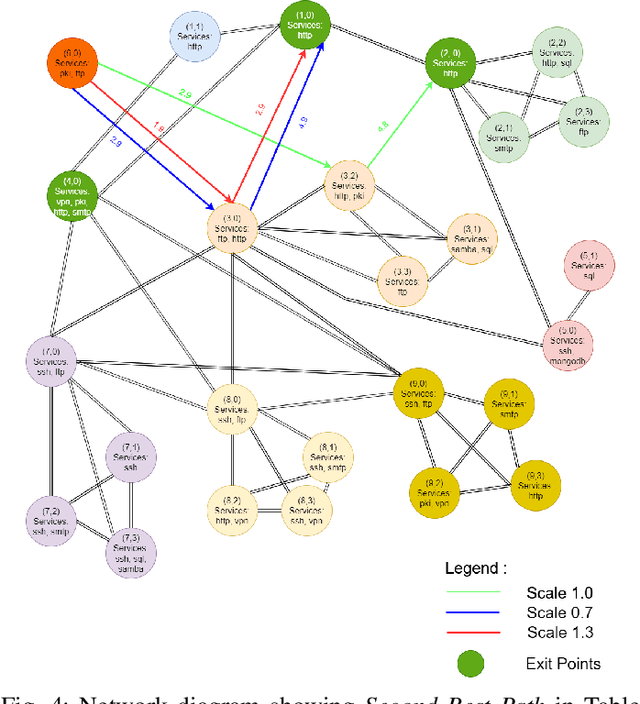Discovering Exfiltration Paths Using Reinforcement Learning with Attack Graphs
Paper and Code
Jan 28, 2022



Reinforcement learning (RL), in conjunction with attack graphs and cyber terrain, are used to develop reward and state associated with determination of optimal paths for exfiltration of data in enterprise networks. This work builds on previous crown jewels (CJ) identification that focused on the target goal of computing optimal paths that adversaries may traverse toward compromising CJs or hosts within their proximity. This work inverts the previous CJ approach based on the assumption that data has been stolen and now must be quietly exfiltrated from the network. RL is utilized to support the development of a reward function based on the identification of those paths where adversaries desire reduced detection. Results demonstrate promising performance for a sizable network environment.
 Add to Chrome
Add to Chrome Add to Firefox
Add to Firefox Add to Edge
Add to Edge